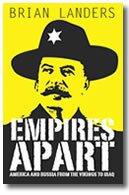 The first response of US legislators to the economic crisis was a whole raft of “America First” measures. “Buy American” provisions were embedded in the various stimulus packages being proposed, all designed to ensure that only American corporations and American workers benefited from the measures. Commitments entered into with other countries, particularly the North American Free Trade Agreement, were suddenly under review. According to a New York Times article earlier this month, a Harvard university economics professor, Kenneth S Rogoff, warned ‘that the United States is in “great danger of backing away from free trade”. That, says the professor, could be a “disaster”.’
The first response of US legislators to the economic crisis was a whole raft of “America First” measures. “Buy American” provisions were embedded in the various stimulus packages being proposed, all designed to ensure that only American corporations and American workers benefited from the measures. Commitments entered into with other countries, particularly the North American Free Trade Agreement, were suddenly under review. According to a New York Times article earlier this month, a Harvard university economics professor, Kenneth S Rogoff, warned ‘that the United States is in “great danger of backing away from free trade”. That, says the professor, could be a “disaster”.’
 All sorts of responses are possible to a comment like that. Advocates and opponents of globalization could tear each other apart over the idea that protectionism is synonymous with disaster and free trade with wealth-creation. But the part of the professor’s assertion that bugged me was that phrase “backing away”. How do you back away from somewhere you’ve never been? To suggest that the United States is backing away from free trade is like suggesting that Barack Obama is backing away from the Klu Klux Klan.
All sorts of responses are possible to a comment like that. Advocates and opponents of globalization could tear each other apart over the idea that protectionism is synonymous with disaster and free trade with wealth-creation. But the part of the professor’s assertion that bugged me was that phrase “backing away”. How do you back away from somewhere you’ve never been? To suggest that the United States is backing away from free trade is like suggesting that Barack Obama is backing away from the Klu Klux Klan.
In Empires Apart I describe in some detail how the American and Russian economies developed in very different ways over the last two or three centuries, but one thing they had in common – neither had any time for free trade.
Britain’s American colonies grew rich behind tariff barriers and that continued after independence. America’s manufacturing might was built behind punitive tariffs – by 1913 average tariff rates on imported manufactures were zero in Britain, 13 per cent in Germany, over 20 per cent in France and a massive 44 per cent in the US. In 1932, while the world was wallowing in depression, American import duties incredibly reached almost 60 per cent of the value of imports.
More recently a reader who booked a cruise from New York to Canada and then back to Florida complained to the travel pages of the Observer that he been made to leave the ship in Quebec City and travel overland to Montreal. The reason, it transpired, was that the US Jones Act (technically the Passenger Services Act) makes it illegal for passengers to travel from one US port to another on a non-US vessel. To avoid this protectionist legislation, foreign cruise operators have to break their voyage into separate unconnected legs, each starting or terminating outside the US.
True there have been some tariff reductions but these have in practice been easily balanced by the massive subsidies given to exporters, especially farm exporters in electorally critical states. The obscene subsidies paid to cotton farmers in the Bush home state of Texas and to rice growers in Clinton’s Arkansas have devastated third world competitors.
There are fundamental differences in what for want of a better word might be described as the political “ideologies” of Americans and Europeans. America is essentially parochial. Anyone watching US TV in the last few years must have been struck by the campaigns trying to persuade American drivers to convert to bio-fuels. But whereas in Europe the adverts would have concentrated on the benefits to the environment or on price the message on American TV was quite different: help reduce American dependence on foreign oil.
No wonder that in the latest economic crisis legislators made sure that foreigners would not benefit from their largesse – even to the point of insisting that banks receiving federal aid be banned from applying for work permits for foreign workers. US electors expect their representatives to put US interests first. In 2007 a Pew Global Attitudes Survey ranked 47 countries as varied as Bangladesh, China, Germany and Nigeria in terms of support for free trade: the US came last.
The stimulus bill passed by Congress last February contained numerous Buy American measures, with broad restrictions on buying foreign-made iron, steel and manufactured goods alongside a pious insistence that international trade agreements need to be respected. Robert Gibbs, a White House spokesman showed what the debate was really about when he claimed that: “Where we ended up . . . is the right compromise that respects the [Buy American] laws that we’ve had on our books for many, many years while also ensuring that the language doesn’t create unnecessary trade disagreements.” The substance can be protectionist as long as the language is not.
To an economist, the US may seem to be backing away from free trade but to a historian the US is simply standing still.
